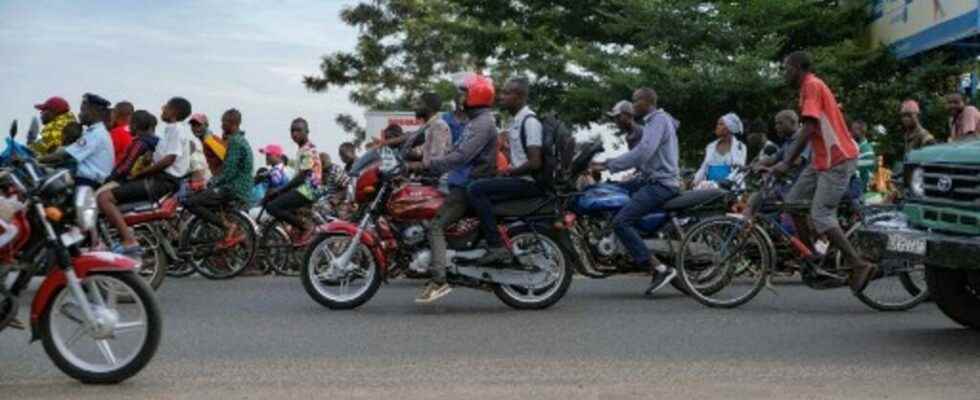The measure which prohibits motorcycle taxis, bicycle taxis and tuk-tuks in most of the Burundian capital, Bujumbura, came into force on Monday March 21 and was 100% respected, rejoiced in a tweet from the administrator of the commune of Mukaza. A measure far from delighting users, however.
For the first time in years, no bicycles, motorbikes or tuk-tuks circulated on the streets of Bujumbura, where many police officers were deployed to enforce their ban in the city.
No driver of these machines accused of being responsible for the majority of road accidents dared to disregard the warning ” to the recalcitrant from the Ministry of the Interior and Public Security. As a result, many people had to walk to get to work or school on Monday morning, in this country among the poorest in the world, where public transport is still embryonic.
“The sky has fallen on our heads”
The measure is drastic: even a private individual who rides a bicycle or motorbike for leisure and sport no longer has the right to use it, he cannot also keep it in his house under penalty of sanctions for those who inhabit the forbidden zone, according to the Interior Ministry.
” It is a disaster », « the sky has fallen on our heads “, these are some of the comments that have been circulating for a few days on Burundian social networks, because this measure hits hard more than 20,000 drivers of taxis-motorcycles, bicycles and tuk-tuks identified by the services of the town hall. from Bujumbura.
Other victims: the thousands of cyclists who collected milk from the various farms around the city and delivered it to bakeries or directly to households, or who until now supplied the markets and other shops with charcoal, vegetables or other basic products.
Some 100,000 families affected
In reality, some 100,000 families are affected, if we also take into account other activities linked to this transport sector, in particular mechanics, sellers of spare parts or even the owners of these machines, according to the president of Olucome, one of the main local NGOs, Gabriel Rufyiri.
Olucome and a second organization, Parcem, denounced ” a measure taken in haste, without careful study and without any legal basis “, before calling for its suspension. In vain.
